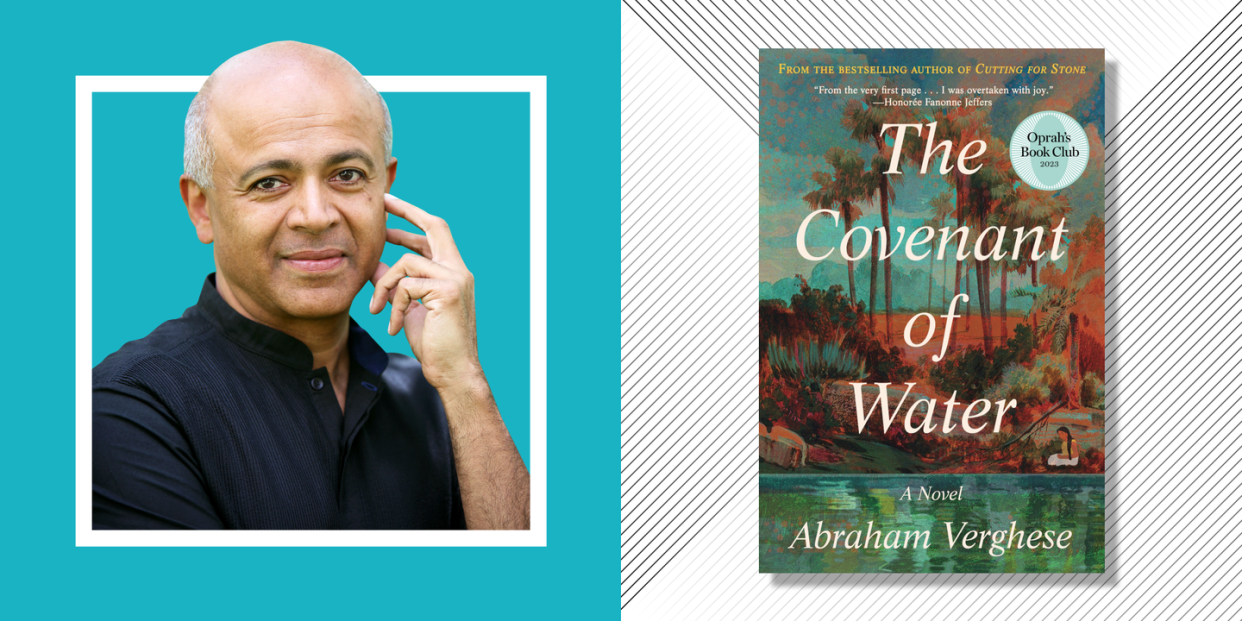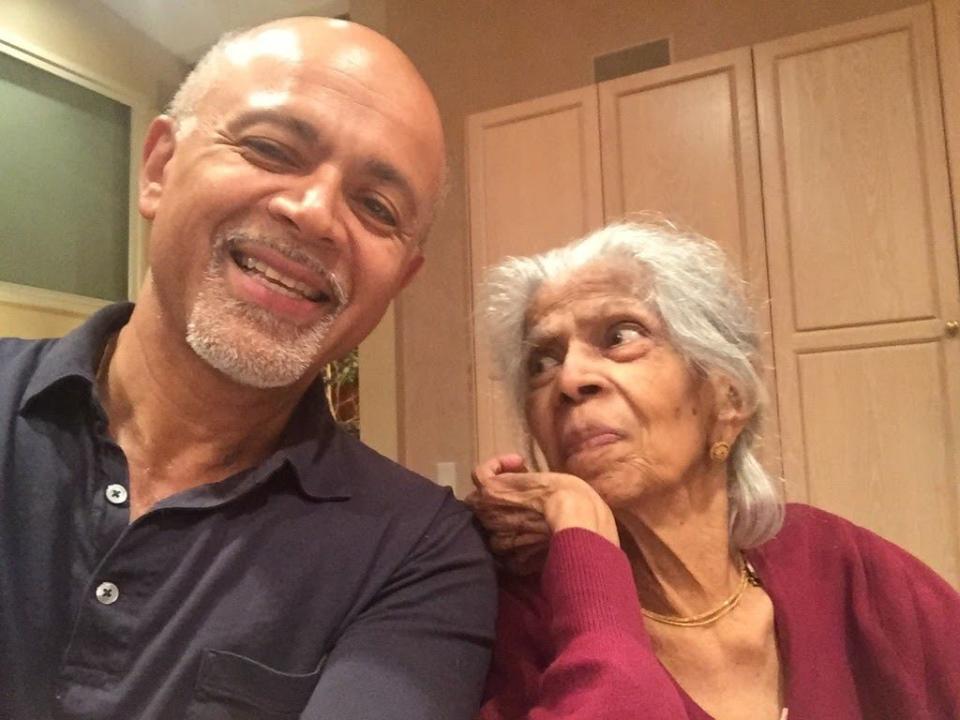The Three Magic Words I Finally Told My Mother

- Oops!Something went wrong.Please try again later.
"Hearst Magazines and Yahoo may earn commission or revenue on some items through these links."
My parents moved to Palo Alto in 2009, when they were in their 80s; their apartment was close enough for my younger brother and I to see them often. I’d drop in two or three times a week, and I’d call every day. Once, when I was finishing a call to Mom, my partner, Cari, nudged me and mouthed the words “Say, I love you, Mom.”
I didn’t. After hanging up I explained to Cari that such overt expressions of affection were avoided in our Indian culture. I don’t think I’d ever heard my parents say those words. Sure, Mom hugged and coddled me as a child, but “I love you” just wasn’t in the vocabulary. They expressed their love over the years by caring and providing for us, by giving us rich and varied experience, and by setting an example.
Mom was the extrovert, always chatty, and with many stories to recount, a counterpoint to my often-silent father. But she was also the disciplinarian. When you triggered her temper, watch out! I think one of my ear lobes is longer than the other from her twisting it—a typical Indian manner of corporal punishment that is less painful than it is humiliating. Not that her actions weren’t understandable: I tested her limits climbing things I wasn’t supposed to; I still have a long scar down the inside of my right thigh from sliding down the metal drainpipe outside our two-story apartment building like Zorro.
She had grown up Kerala, South India. Within the generally conservative Indian culture, the St. Thomas Christian community were even more reserved and chaste, the women wearing a shapeless blouse and a mundu, the latter with a hand-pleated fan tail tucked behind to conceal the buttocks or any hint of them. In addition, she had lived a life of challenges. Mom completed a master’s degree in physics, an unusual accomplishment for a woman in the 1940s. She moved first to Sri Lanka to teach for a few years, and then traveled 2,400 miles and a continent away to Ethiopia to teach physics when she was barely 28 years old. She had emigrated to America in her early 50s, where she taught school in New Jersey. Those challenges made her confident, strong, and adaptable, but the imprint of her own upbringing kept her from being vulnerable or sharing confidences with her children in the way parents might in America.
By the time of her move to Palo Alto, she had mellowed into a sweet old lady, a doting grandmother. When Cari and I visited, she greeted us as if we’d been gone for ages instead of two days. We’d sit on either side of her on the sofa, watching Jeopardy!—and Mom would quietly slip her hands into ours. Her hand felt tiny in mine, like a fragile bony bird or like kindling. She was always sad to see us go. I never doubted she loved me; she felt no need to say it.

On another phone call with Mom, Cari nudged me again and mouthed, “Say, I love you!” This time I did. “I love you, Mom,” I said. There was an awkward pause, then a giggle. Then Mom said, “Thank you, makalay.” (Makalay is a term of endearment for a child in Malayalam, the language of Kerala.) I could tell she was pleased. From then on, I said it after every call, and always got a giggle and “Thank you, makalay.” But one day she surprised me, because her reply, so soft that I thought I misheard it, was “Me too, makalay.” Close enough! I was thrilled.
During this time, I had started a new novel, The Covenant of Water, set in Kerala. Mom was delighted to help, sharing stories and answering my questions. Sometimes she’d ring me up to recount an anecdote, forgetting she’d shared the same story the previous day! But Mom had a new routine now when we wound down the call: She’d say, “You haven’t said the magic words!” When I did, she’d reply, her voice melting, “Me too, makalay!”

The Covenant of Water (Oprah's Book Club)
amazon.com
I marveled at the way our relationship had turned on its head; of her three sons, I’d been the most rebellious, causing her much anxiety. But now I was the one worrying about her, and with good reason: At 90 she’d become quite frail. Every goodbye felt so poignant. I’d often feel overcome after I visited her. She was well, but I knew one day it would change. And it did.
Mom passed away in 2016. Dad now lives with my older brother and his wife in Boston. I often pass by the apartment on Alma Street where they lived. I glance up to the third-floor window where Mom would sit looking out. I say those magic words that charmed her: I love you, Mom. I hear her say, Me too, makalay.
Abraham Verghese is a physician and a professor of medicine at Stanford University, where he is the vice-chair of the department of medicine and holds the Linda R. Meier and Joan F. Lane Provostial Professorship. He is the author of the of The Covenant of Water (Grove Press, 2023), My Own Country (1994 ), The Tennis Partner (1998) and Cutting for Stone (2009).
You Might Also Like

